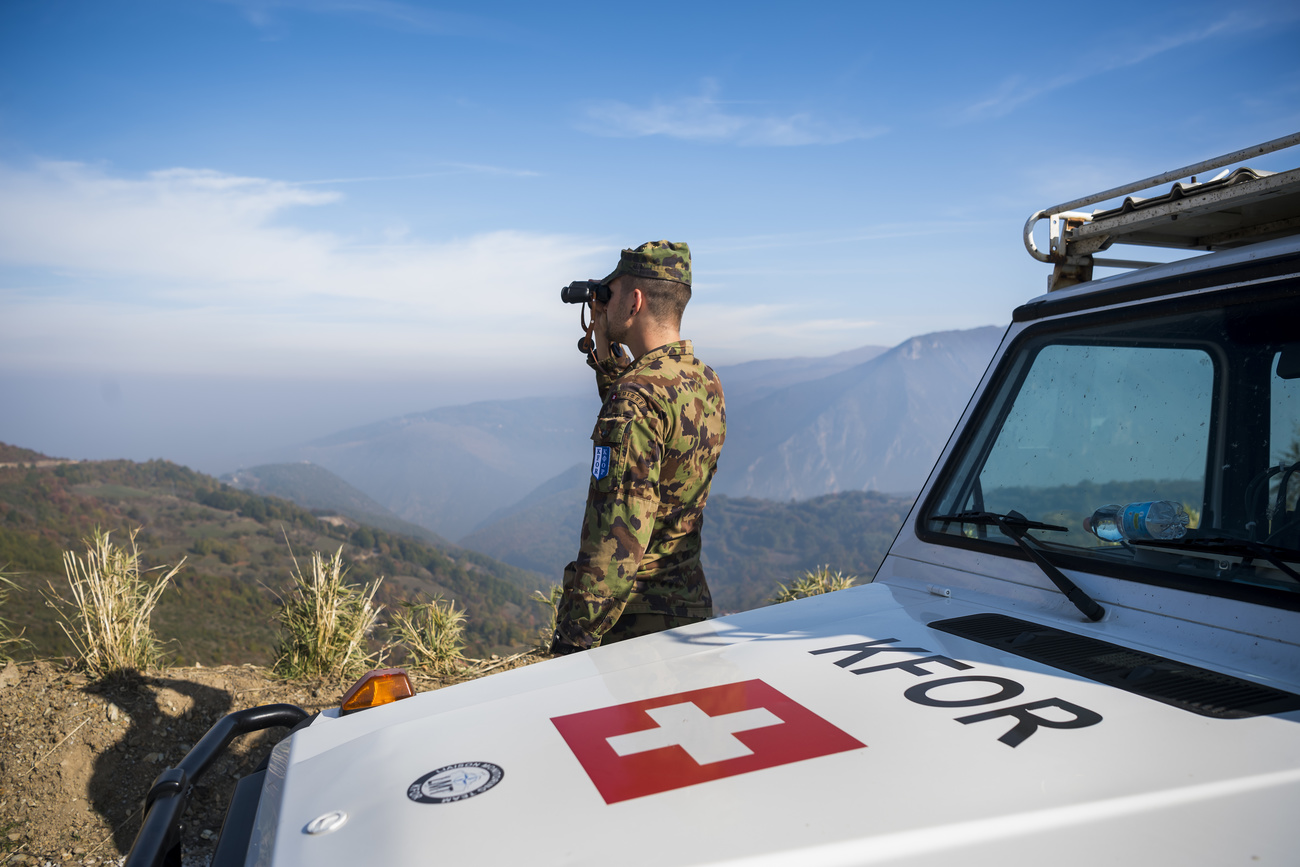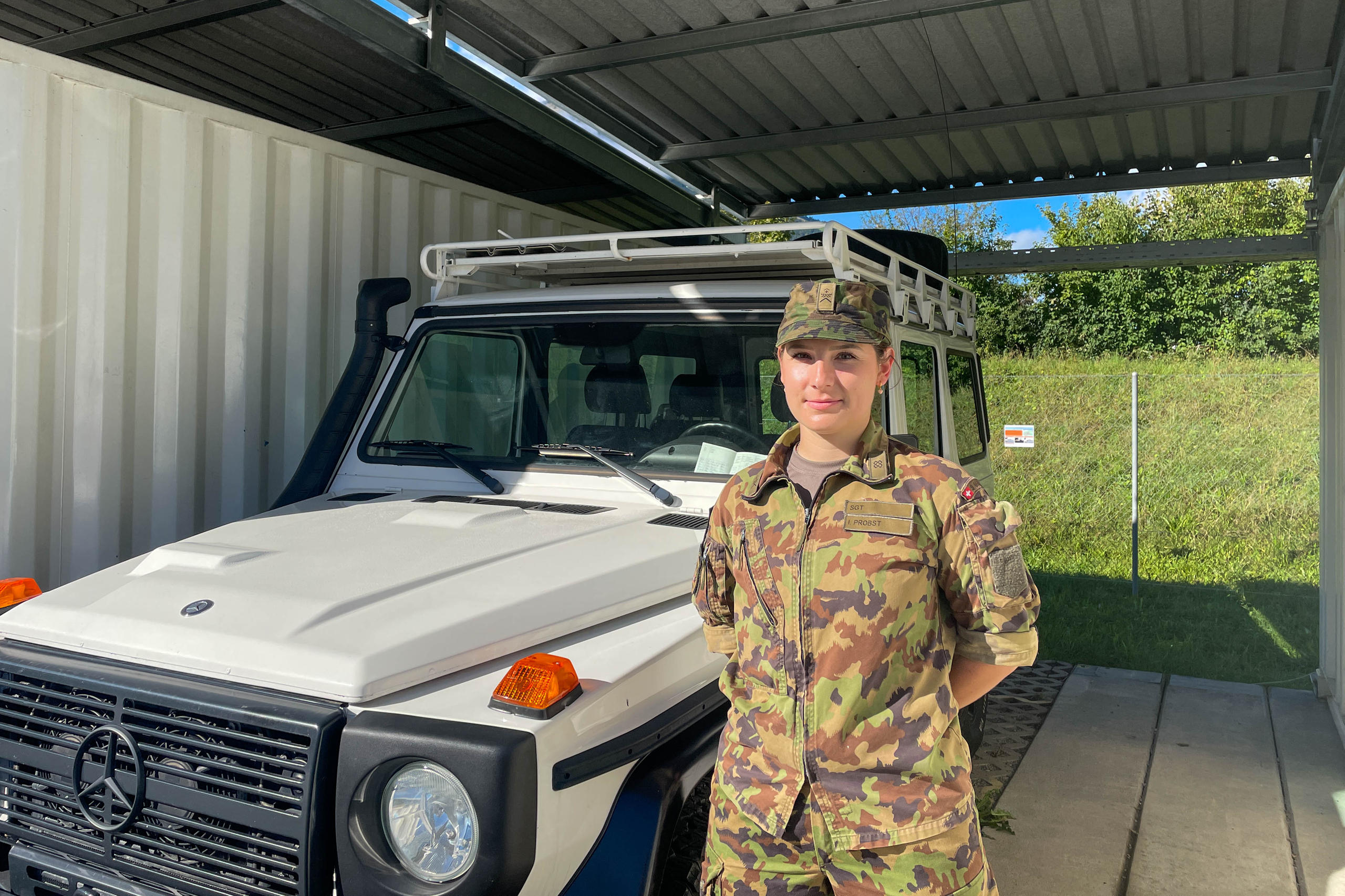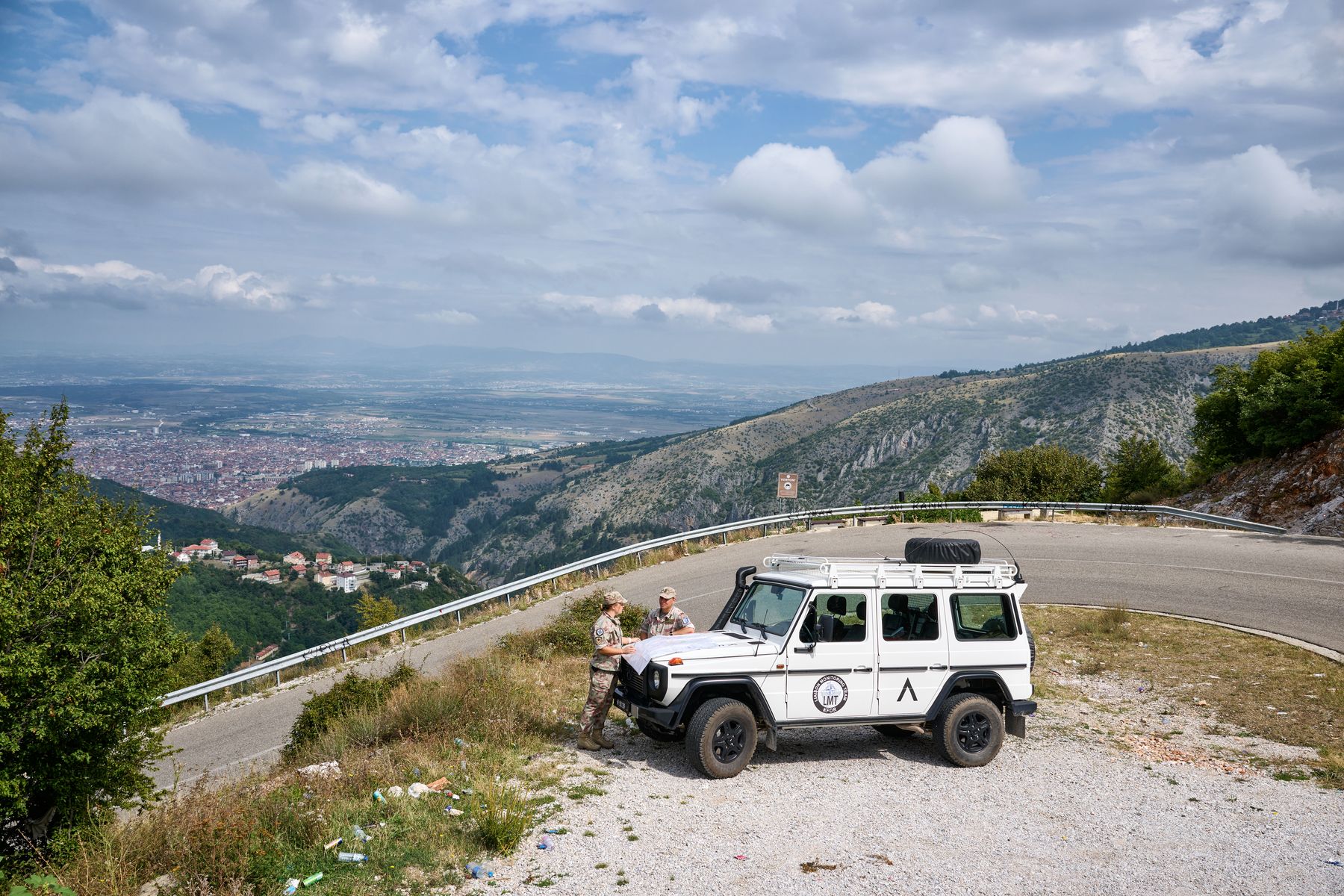
Kosovo: how recent tensions are affecting Swiss peacekeepers

Around 200 Swiss soldiers are helping secure peace in Kosovo as part of the NATO-led KFOR mission. They have been experiencing first-hand the rising tensions in the region following recent ethnic violence.
Tensions in the region have risen in recent months. Serbia has deployed troops along the border with Kosovo. In May, Serb demonstrators in northern Kosovo clashed with NATO peacekeeping troops. In September, a Kosovo police officer and three Serb gunmen were killed in a shootout after about 30 masked men opened fire on a police patrol near the Kosovo village of Banjska.
SRF editor Matthias Strasser, who recently visited Swiss troops on the Swisscoy mission in Kosovo, describes the current situation and the troops’ views on their mission.
How are the current political tensions affecting the daily lives of the Swiss troops?
Matthias Strasser: The troops normally experience quiet, routine days, but tensions are rising. The commander of Swisscoy force in Kosovo explained that although they do daily assessments of the situation, they don’t really know each morning what the day will bring.
The soldiers stationed in the Mitrovica region on the border with northern Kosovo feel the tensions in their day-to-day operations when on patrol. They talk about a worsening situation and stress that issues linked to their own security are once again much more important than before.
How has the recent incident in Banjska changed KFOR’s mission?
M.S.: KFOR was not directly involved in Banjska when the situation escalated. It was mainly Kosovan security forces who reacted there. But these escalations are included in the assessment of the situation. The Swiss suddenly had to patrol wearing protective jackets and carry rifles instead of pistols. Of course, that makes it much more difficult for these forces to make contact with the population.
You can imagine that when a soldier in combat gear wants to talk to a schoolchild, certain hurdles arise. The mission therefore became more dangerous, at least in some phases, and it’s more difficult to complete tasks.
The Swiss soldiers are supposed to maintain contact with the population and spot tensions early on. If there are still such attacks, what is the point of the Swisscoy presence at all?
M.S.: That’s the big question. Those in favour say that this presence is necessary because it is part of the international, Western security framework in the Balkans. Given the tasks Switzerland is taking on locally, I would say it is a very small component, but one that is not negligible overall.

More
SWISSCOY: more female recruits for more peace
Critics say that Kosovo must also become independent in terms of security and that troops need to withdraw. One thing is clear: Swisscoy cannot prevent tensions in the region, but it’s part of efforts to guarantee security for the state of Kosovo.
Swisscoy has been deployed in Kosovo since 1999. What will happen next?
M.S.: For a long time, it looked as if the number of Swiss soldiers would be gradually reduced. That is no longer the case today. Peace in Kosovo needs more international support again. KFOR and Swisscoy, the Swiss contingent, therefore have more people on the ground again, as authorised by the Swiss parliament.
And the latest developments seem to justify this. A withdrawal is rather unlikely in the coming years as long as the majority in parliament favours extending the mission.

More
Swisscoy: How Swiss participation in Kosovo peace mission lays bare the neutrality debate

In compliance with the JTI standards
More: SWI swissinfo.ch certified by the Journalism Trust Initiative





























You can find an overview of ongoing debates with our journalists here . Please join us!
If you want to start a conversation about a topic raised in this article or want to report factual errors, email us at english@swissinfo.ch.